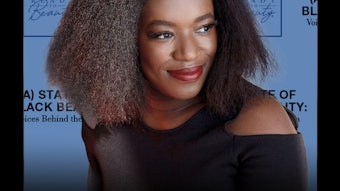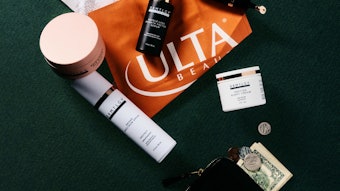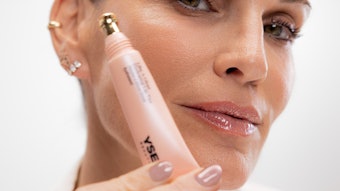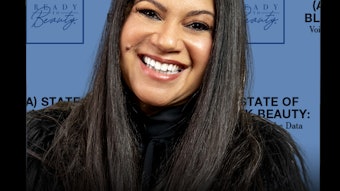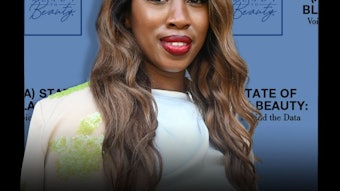Two years ago, few companies were investing in social media, but, during the course of 2010, there were clearly huge changes in attitude and approaches to bloggers, FaceBook, Twitter and other social networking platforms. “Big global companies are trying to adjust, and we are seeing a willingness to change, which wasn’t present before,” says Sean Singleton, managing director of digital creative company Skive.
Early in 2010, Singleton noted a change in attitude after running a session for a group of public relations professionals at L’Oréal, to which a number of key beauty bloggers were invited. By the end of the day, nine of the PR professionals were on Twitter following the key bloggers. “There is still a lot to do in terms of commitment of budgets, but at least the industry is recognizing the opportunity there,” says Singleton.
Companies have been slow in adopting a social media strategy for several reasons. Mostly, many lack an understanding about what it can do for their brands, but fear also plays a strong role. Those unfamiliar with blogs and Twitter may be fearful of negative criticism and how to deal with it, so they ignore it rather than become involved.
Singleton cites the example of Dell Computers, which used to have a reputation for unreliable products and a lack of communication with its customers. Things came to a head when an online video of one of its laptops catching fire went global, earning the company the moniker “Dell Hell.”
Already under fire for its strategy for cutting costs at its call centers, Dell reacted to this ultimate in negative publicity by investing in a social media program. “Dell embraced the criticism and turned it to its advantage by using social media,” says Singleton, who believes that beauty brands have a lot to learn from this example. “Beauty brands like to control their message and to be visually strong.”
Further, he notes that there may be an inclination to avoid taking risks. “Global companies tend to be risk averse, but social media is about doing a hundred things and seeing what works. It’s an alien strategy.”
Gradually, beauty companies are waking up to the benefits of a social media strategy, and more PR pros are using bloggers to communicate brand awareness and product launches. Estée Lauder was one of the first companies to realize that it could not afford to ignore the power of the bloggers. Early adopters under the company’s brand umbrella included Clinique, which led the way with an online press office, and MAC. Singleton reckons that MAC is still the best brand in terms of digital marketing and particularly, social media.
The Blogosphere
The blog site Beauty and the Dirt, led by Krista Madden, started up 11 years ago, when blogging was still in its infancy. In 2009, Madden used her experience to found Handpicked Media, a service that helps beauty, fashion and lifestyle brands select which blogs to target. On its site, Handpicked states that it champions blogs that are creative and unique with high quality content. “We do the legwork for PR [pros] who want to work with reputable writers,” says Madden. “Handpicked now has about 200 blogs in beauty and fashion. We also put on blogger events for brands to meet the bloggers. Not all bloggers are trained journalists, so meeting the brands can be intimidating.”
Laura Bacharach is a beauty editor turned blogger who observes that brand involvement with the bloggers varies enormously, with many PR companies sending regular e-mail bulletins and providing samples on request. “Some brands like to do mass events with many bloggers attending; others target a top 10 of blogs and some contact bloggers via a network, such as Handpicked Media,” she says. “I think brands have become a lot more proactive about keeping bloggers in the loop recently, perhaps only in the last six months.”
She adds: “I don’t think any brand would deny the impact of bloggers, although the answer might have been different just a year ago. Blogs give brands a whole new channel of communication, which can be especially valuable to them when they have short lead times, regional events or last minute stories that magazines can’t feature because of their lead times or because they are too niche.”
Bloggers are able to respond faster than even traditional daily print publications, empowering them as primary news breakers. “The blogger’s freedom to openly express their honest opinion on a product and publish tried and tested reviews that are not endorsed by advertisers has earned them consumer trust as a reliable, unbiased source,” says U.K-based editor, freelance writer and beauty blogger Julia Brandon.
Reaching Consumers and Letting Go of Control
“Social media allows brands to develop a closer relationship with consumers,” affirms Singleton. “It also allows brands to use the best form of marketing (social commerce)—the power of recommendations. People trust recommendations from individuals, even strangers, rather than being sold to by brands.”
Most bloggers spread the word about their posts via Twitter. Bacharach has seen an explosion of new brands joining Twitter in 2010. Examples include Bobbi Brown, Lancôme and Bourjois, which enables them to interact with the bloggers on a personal level. So will social media replace more traditional ways of communicating with consumers? Singleton points out that the mass adoption of television did not kill radio advertising. “I still think traditional advertising has an important part to play.”
Many of the big beauty companies still have some way to go before they fully embrace the social media change, especially those with massive brand portfolios. Singleton concludes: “Brands need to let go of their control and be humble. Consumers are in control and they need to get used to it.”
Imogen Matthews is a consultant to In-cosmetics. For more information, visit www.imogenmatthews.co.uk.

